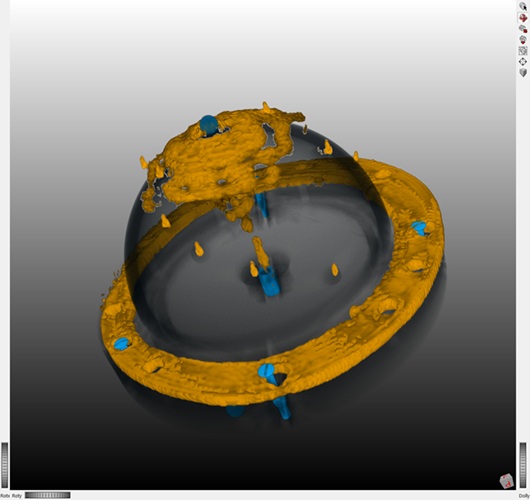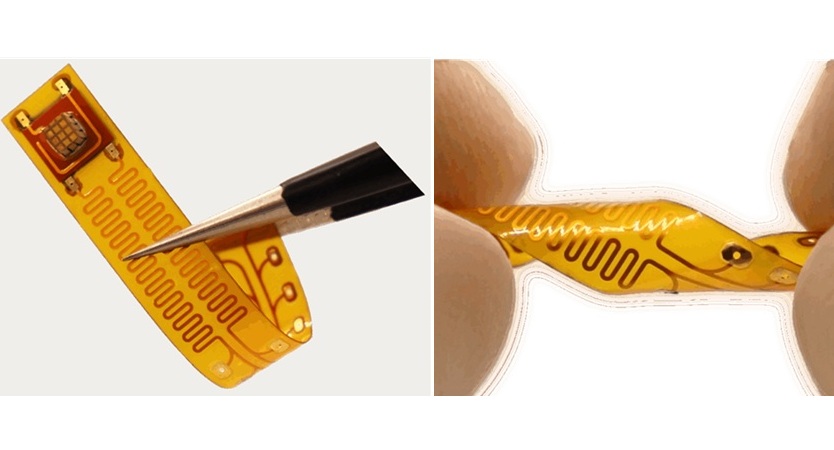Philips Receives Global AI for Enhanced Radiology Interpretation Company of The Year Award from Frost & Sullivan
|
By MedImaging International staff writers Posted on 10 Mar 2020 |

Illustration
Philips Healthcare (Amsterdam, Noord-Holland) has been recognized with the 2019 Global Company of the Year Award by Frost & Sullivan, based on its recent analysis of the global market for Artificial Intelligence (AI) for enhanced radiology interpretation market. Each year, Frost & Sullivan presents a Company of the Year award to the organization that demonstrates excellence in terms of growth strategy and implementation in its field. The award recognizes a high degree of innovation with products and technologies, and the resulting leadership in terms of customer value and market penetration.
Philips' paradigm of combining physician enhancing, AI-based technologies, driven by contextual insights, and embedded into radiology workflows, is a disruptive imaging informatics strategy. It underscores the company's approach of employing clinically intelligent software to adapt to radiologists' skills and preferences. The company embeds advanced algorithms across multiple touchpoints in the radiologist workflow and patient care pathway, offering insights each step of the way. This new paradigm generates dynamic, meaningful, insight-rich findings delivered in a tailored, context-aware view, empowering radiologists to transition from volume- to value-based care.
Philips seeks to empower care teams to offer precision medicine (PM) by adopting a systems approach to patient care. Its Enterprise Diagnostic Imaging Solution is a configurable suite of informatics tools granting care teams access to vital information, and then leveraging that information to cultivate the insights needed for precision diagnosis. It combines clinical domain and operational knowledge to channel their components into solutions that propel its clinical and diagnostic service lines. The company now owns one of the industry's broadest portfolios, fueled by deep research collaborations with clinical partners and outreach for enhancing third-party informatics solutions.
Philips' AI paradigm stands out from competing approaches in three ways - contextual relevance, reduced variability, and extensibility. The system streamlines workflows and enables intuitive, robust, and reliable hanging protocols backed by an intelligent image processing engine. The company is now working toward integrating AI algorithms in its precision diagnostics platform and imaging modalities, whether developed internally, through deep customer partnerships, or integrated via third-party collaborations directly within radiologist-caregiver workflows.
"Philips provides integrated solutions and services spanning the health continuum, care levels, and settings. Its vision centers on sustainable health with the stated purpose of improving the lives of 3 billion people a year by 2030," said Siddharth Shah, Industry Manager. "To this end, the company views AI not as a point solution enabler, but as an embedded facilitator in the entire radiology workflow, delivering an enhanced, seamless experience to the radiologist. Philips has optimally harnessed its technology assets across various industries and business units with the end-goal of facilitating holistic, patient-specific insights and smart clinical decision-making at the point-of-care."
Related Links:
Philips Healthcare
Philips' paradigm of combining physician enhancing, AI-based technologies, driven by contextual insights, and embedded into radiology workflows, is a disruptive imaging informatics strategy. It underscores the company's approach of employing clinically intelligent software to adapt to radiologists' skills and preferences. The company embeds advanced algorithms across multiple touchpoints in the radiologist workflow and patient care pathway, offering insights each step of the way. This new paradigm generates dynamic, meaningful, insight-rich findings delivered in a tailored, context-aware view, empowering radiologists to transition from volume- to value-based care.
Philips seeks to empower care teams to offer precision medicine (PM) by adopting a systems approach to patient care. Its Enterprise Diagnostic Imaging Solution is a configurable suite of informatics tools granting care teams access to vital information, and then leveraging that information to cultivate the insights needed for precision diagnosis. It combines clinical domain and operational knowledge to channel their components into solutions that propel its clinical and diagnostic service lines. The company now owns one of the industry's broadest portfolios, fueled by deep research collaborations with clinical partners and outreach for enhancing third-party informatics solutions.
Philips' AI paradigm stands out from competing approaches in three ways - contextual relevance, reduced variability, and extensibility. The system streamlines workflows and enables intuitive, robust, and reliable hanging protocols backed by an intelligent image processing engine. The company is now working toward integrating AI algorithms in its precision diagnostics platform and imaging modalities, whether developed internally, through deep customer partnerships, or integrated via third-party collaborations directly within radiologist-caregiver workflows.
"Philips provides integrated solutions and services spanning the health continuum, care levels, and settings. Its vision centers on sustainable health with the stated purpose of improving the lives of 3 billion people a year by 2030," said Siddharth Shah, Industry Manager. "To this end, the company views AI not as a point solution enabler, but as an embedded facilitator in the entire radiology workflow, delivering an enhanced, seamless experience to the radiologist. Philips has optimally harnessed its technology assets across various industries and business units with the end-goal of facilitating holistic, patient-specific insights and smart clinical decision-making at the point-of-care."
Related Links:
Philips Healthcare
Latest Industry News News
- GE HealthCare and NVIDIA Collaboration to Reimagine Diagnostic Imaging
- Patient-Specific 3D-Printed Phantoms Transform CT Imaging
- Siemens and Sectra Collaborate on Enhancing Radiology Workflows
- Bracco Diagnostics and ColoWatch Partner to Expand Availability CRC Screening Tests Using Virtual Colonoscopy
- Mindray Partners with TeleRay to Streamline Ultrasound Delivery
- Philips and Medtronic Partner on Stroke Care
- Siemens and Medtronic Enter into Global Partnership for Advancing Spine Care Imaging Technologies
- RSNA 2024 Technical Exhibits to Showcase Latest Advances in Radiology
- Bracco Collaborates with Arrayus on Microbubble-Assisted Focused Ultrasound Therapy for Pancreatic Cancer
- Innovative Collaboration to Enhance Ischemic Stroke Detection and Elevate Standards in Diagnostic Imaging
- RSNA 2024 Registration Opens
- Microsoft collaborates with Leading Academic Medical Systems to Advance AI in Medical Imaging
- GE HealthCare Acquires Intelligent Ultrasound Group’s Clinical Artificial Intelligence Business
- Bayer and Rad AI Collaborate on Expanding Use of Cutting Edge AI Radiology Operational Solutions
- Polish Med-Tech Company BrainScan to Expand Extensively into Foreign Markets
- Hologic Acquires UK-Based Breast Surgical Guidance Company Endomagnetics Ltd.
Channels
Radiography
view channel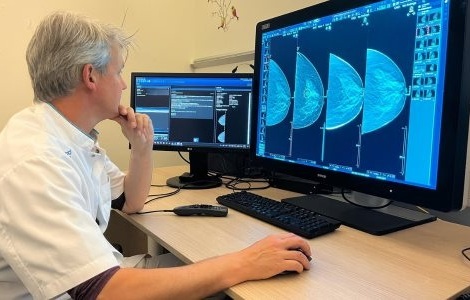
AI Hybrid Strategy Improves Mammogram Interpretation
Breast cancer screening programs rely heavily on radiologists interpreting mammograms, a process that is time-intensive and subject to errors. While artificial intelligence (AI) models have shown strong... Read more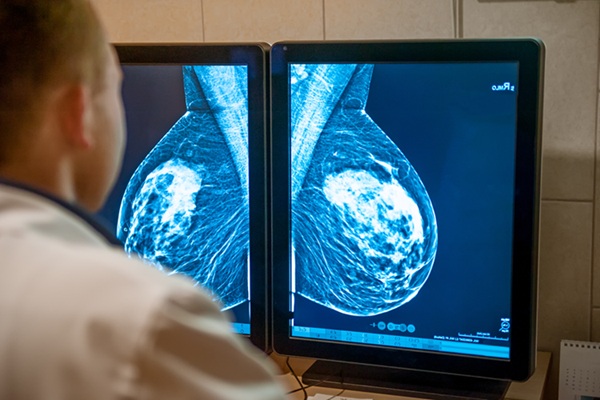
AI Technology Predicts Personalized Five-Year Risk of Developing Breast Cancer
Breast cancer remains one of the most common cancers among women, with about one in eight receiving a diagnosis in their lifetime. Despite widespread use of mammography, about 34% of patients in the U.... Read moreMRI
view channel
AI-Assisted Model Enhances MRI Heart Scans
A cardiac MRI can reveal critical information about the heart’s function and any abnormalities, but traditional scans take 30 to 90 minutes and often suffer from poor image quality due to patient movement.... Read more
AI Model Outperforms Doctors at Identifying Patients Most At-Risk of Cardiac Arrest
Hypertrophic cardiomyopathy is one of the most common inherited heart conditions and a leading cause of sudden cardiac death in young individuals and athletes. While many patients live normal lives, some... Read moreUltrasound
view channel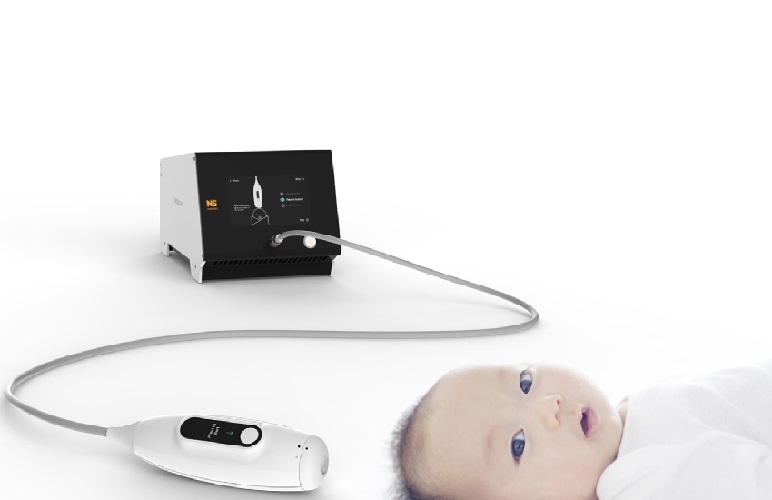
Non-Invasive Ultrasound-Based Tool Accurately Detects Infant Meningitis
Meningitis, an inflammation of the membranes surrounding the brain and spinal cord, can be fatal in infants if not diagnosed and treated early. Even when treated, it may leave lasting damage, such as cognitive... Read more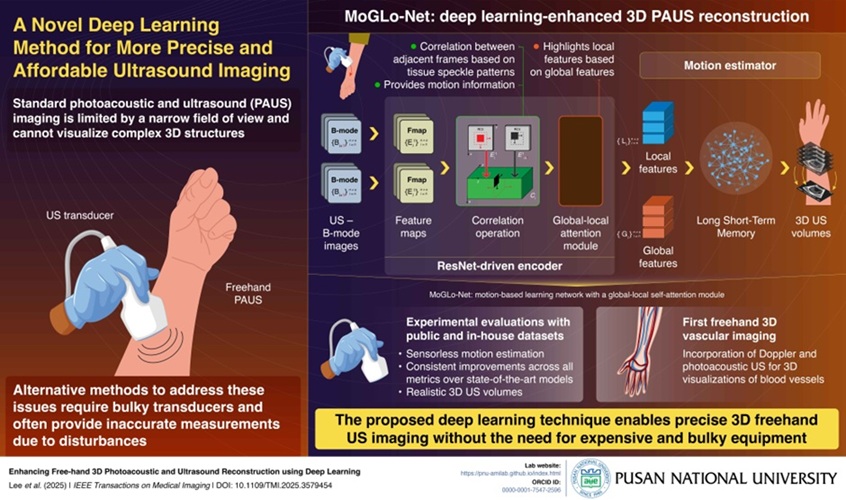
Breakthrough Deep Learning Model Enhances Handheld 3D Medical Imaging
Ultrasound imaging is a vital diagnostic technique used to visualize internal organs and tissues in real time and to guide procedures such as biopsies and injections. When paired with photoacoustic imaging... Read moreNuclear Medicine
view channel
New Camera Sees Inside Human Body for Enhanced Scanning and Diagnosis
Nuclear medicine scans like single-photon emission computed tomography (SPECT) allow doctors to observe heart function, track blood flow, and detect hidden diseases. However, current detectors are either... Read more
Novel Bacteria-Specific PET Imaging Approach Detects Hard-To-Diagnose Lung Infections
Mycobacteroides abscessus is a rapidly growing mycobacteria that primarily affects immunocompromised patients and those with underlying lung diseases, such as cystic fibrosis or chronic obstructive pulmonary... Read moreGeneral/Advanced Imaging
view channel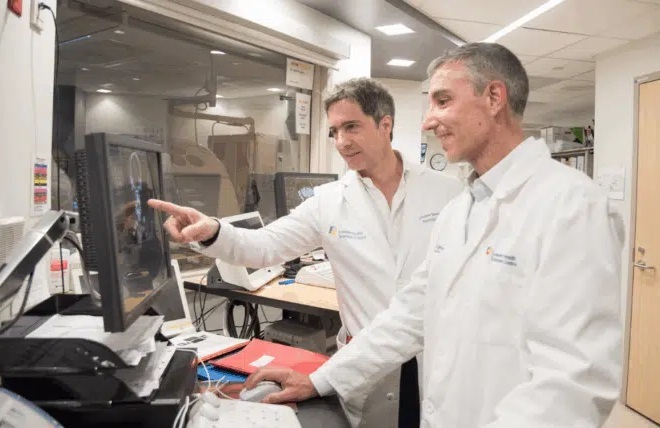
Extending CT Imaging Detects Hidden Blood Clots in Stroke Patients
Strokes caused by blood clots or other mechanisms that obstruct blood flow in the brain account for about 85% of all strokes. Determining where a clot originates is crucial, since it guides safe and effective... Read more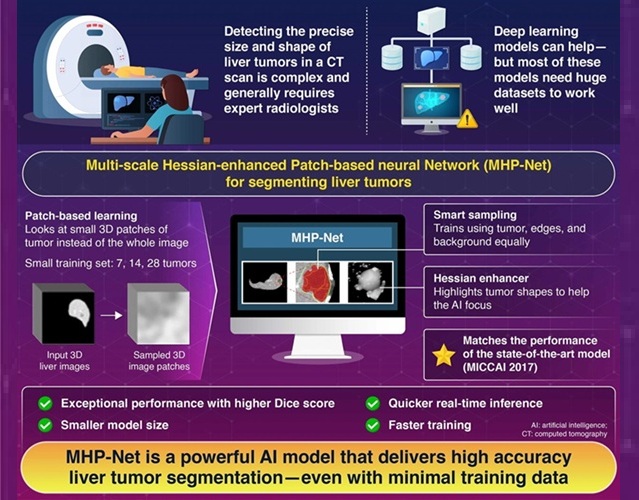
Groundbreaking AI Model Accurately Segments Liver Tumors from CT Scans
Liver cancer is the sixth most common cancer worldwide and a leading cause of cancer-related deaths. Accurate segmentation of liver tumors is critical for diagnosis and therapy, but manual methods by radiologists... Read more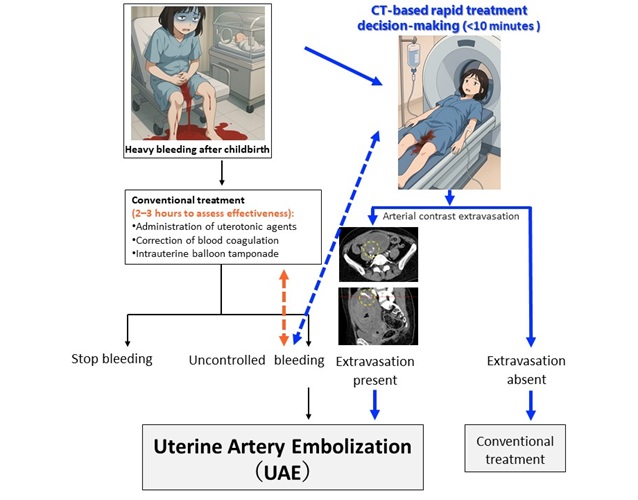
New CT-Based Indicator Helps Predict Life-Threatening Postpartum Bleeding Cases
Postpartum hemorrhage (PPH) is a leading cause of maternal death worldwide. While most cases can be controlled with medications and basic interventions, some become life-threatening and require invasive treatments.... Read moreImaging IT
view channel
New Google Cloud Medical Imaging Suite Makes Imaging Healthcare Data More Accessible
Medical imaging is a critical tool used to diagnose patients, and there are billions of medical images scanned globally each year. Imaging data accounts for about 90% of all healthcare data1 and, until... Read more













